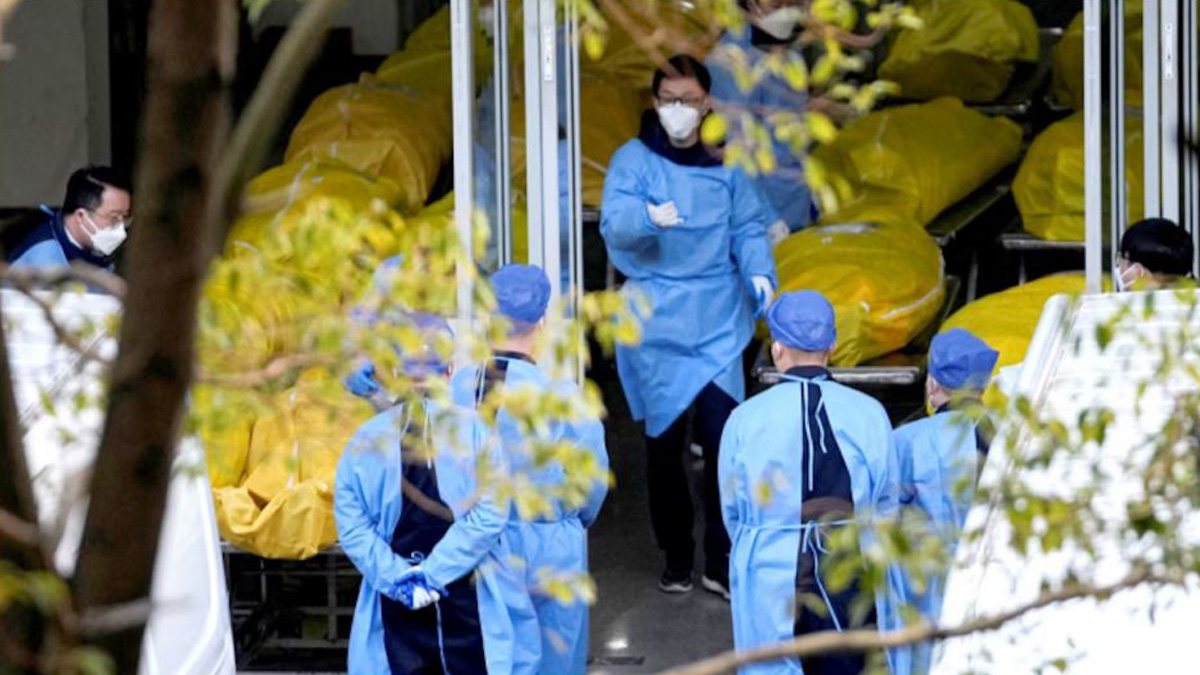
U.S. Defense Report Highlights China’s Role as a Primary Bioweapon Threat
In a recent development, the U.S. Department of Defense has unveiled its comprehensive strategy to address the growing concerns related to biological threats. The release of this strategy coincides with various other developments, including the U.S. Department of Health and Human Services’ (HHS) notice to bar the Wuhan Institute of Virology from federal funding for ten years due to gain-of-function experiments.
The 2023 Biodefense Posture Review, published last month, stands as a critical document outlining the United States’ strategic preparedness against potential biosecurity threats. It acknowledges a troubling backdrop of over two decades of warnings from the Chinese Communist Party (CCP) regarding the use of biotechnology as a form of “unrestricted warfare” against Western nations. The report also addresses the aftermath of the global COVID-19 pandemic, which claimed millions of lives.
The Defense Department, recognizing the urgency of the situation, recently announced an additional annual investment of $300 million over the next five years to bolster defense capabilities against biological threats. This funding is in addition to the approximately $1.4 billion allocated in 2022 for chemical, biological, radiological, and nuclear defenses, as reported by National Defense magazine.
Deb Rosenblum, the Assistant Secretary of Defense for Nuclear, Chemical, and Biological Programs, delivered this announcement in July, emphasizing the concept of “bio-convergence,” which highlights the intersection of biological sciences with emerging technologies.
The Biodefense Posture Review singles out China as the “pacing challenge” for the U.S. Department of Defense, followed by Russia, North Korea, Iran, and unnamed “violent extremist organizations.” This report aligns with the 2022 National Defense Strategy, which places significant emphasis on managing challenges posed by competitors while navigating other threats in an ever-evolving global landscape.
To counter biological threats effectively, the Biodefense Posture Review identifies four key goals for the Defense Department to prioritize by 2035:
Defending the Homeland: This involves addressing the growing multi-domain threat posed by the People’s Republic of China (PRC).
Deterring Strategic Attacks: The goal is to deter strategic attacks against the United States and its allies and partners.
Deter Aggression: The Defense Department seeks to deter aggression while being prepared to prevail in conflict when necessary, with a focus on the PRC challenge in the Indo-Pacific region and the Russia challenge in Europe.
Building Resilience: The report emphasizes the importance of building a resilient Joint Force and defense ecosystem.
While these priority targets are established, the primary sources of biological threats are identified as the CCP and Russia. The CCP’s ambitions and actions in the realm of biotechnology have been a consistent cause for concern, highlighted by Chinese publications referring to biology as a new domain of war.
In the 1990s, the Chinese military introduced the concept of unrestricted warfare, which is characterized by total war that leverages all available technologies beyond traditional military boundaries. This doctrine, detailed in the 1999 book “Unrestricted Warfare” by two People’s Liberation Army (PLA) colonels, Qiao Liang and Wang Xiangsui, included biological weapons as part of its strategy.
The report emphasizes that biological warfare aligns with the principles of unrestricted warfare, where there are no rules and nothing is forbidden. Chinese state-run media have fervently promoted unrestricted warfare, raising concerns in the U.S. government.
The use of genetic weapons, as outlined in Chinese publications, adds another layer of complexity to the issue. Genetic engineering, gene editing techniques, and the potential to target specific racial genes have been discussed, raising ethical and security concerns. These discussions include scenarios where genetically engineered microorganisms with disease-causing genes could be deployed to cause widespread suffering and harm.
The U.S. Department of Defense’s report underscores the importance of addressing these threats and the critical role of biotechnology in modern warfare. It also highlights concerns related to the Wuhan Institute of Virology (WIV), known for its dual-use nature as both a civilian and military research institution. Despite presenting itself as a civilian institution, the WIV has been implicated in classified research and collaborations with China’s military.
The Biodefense Posture Review stresses the urgent need to address these challenges, safeguard national security, and promote international cooperation to mitigate the risks associated with biotechnology and biological warfare. It is a clear recognition of the evolving landscape of modern warfare and the importance of preparedness in the face of emerging threats.














Comments